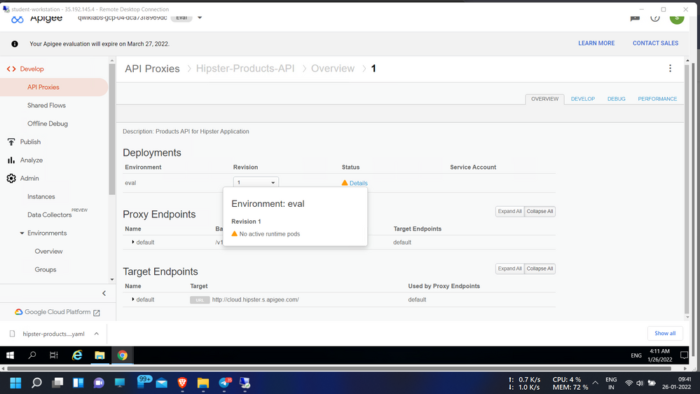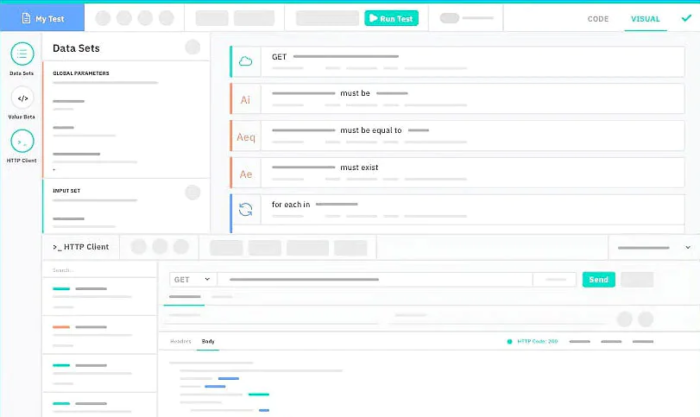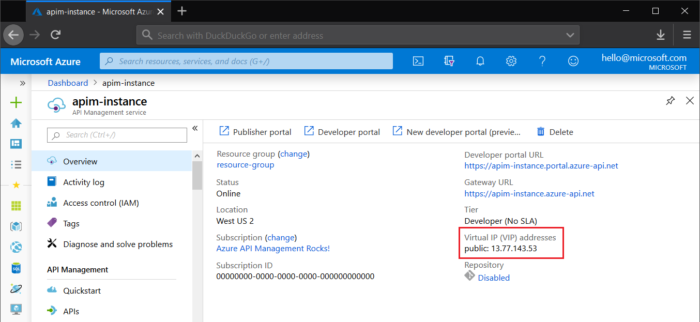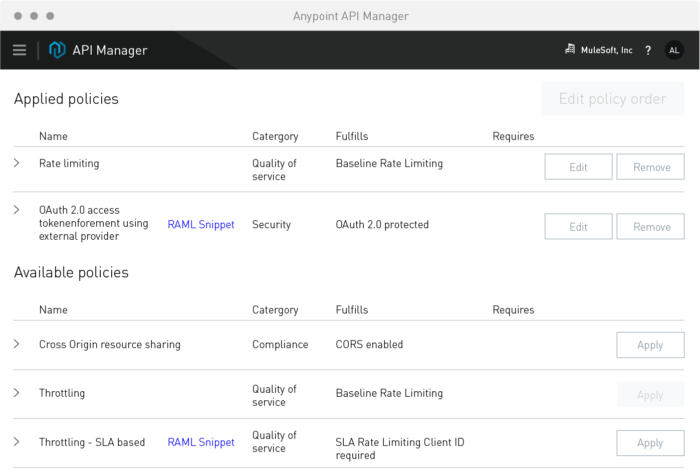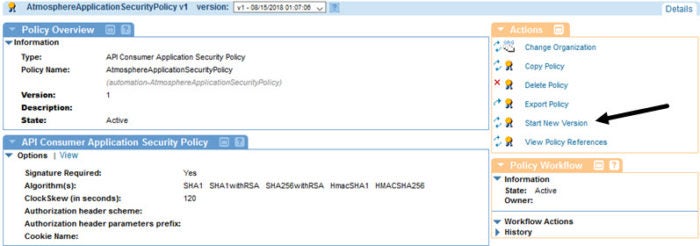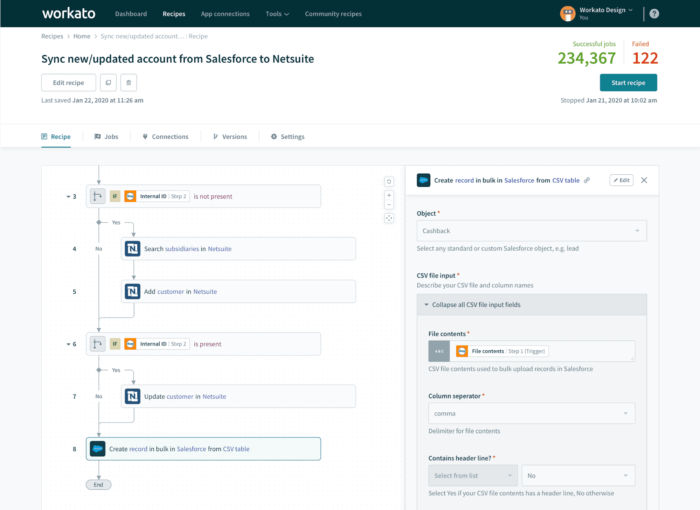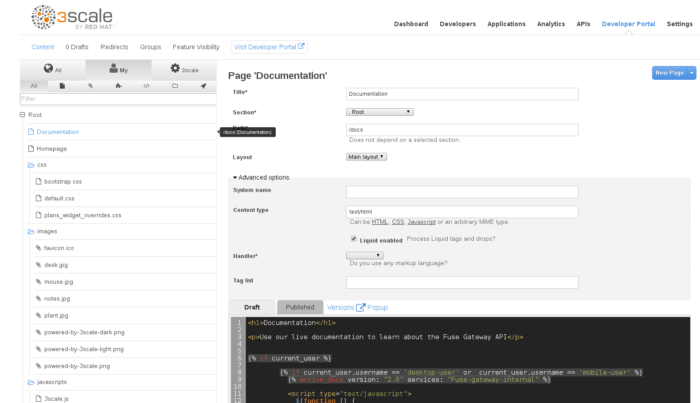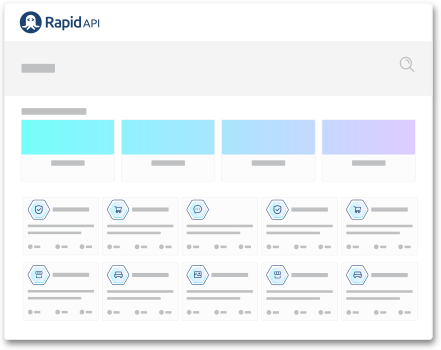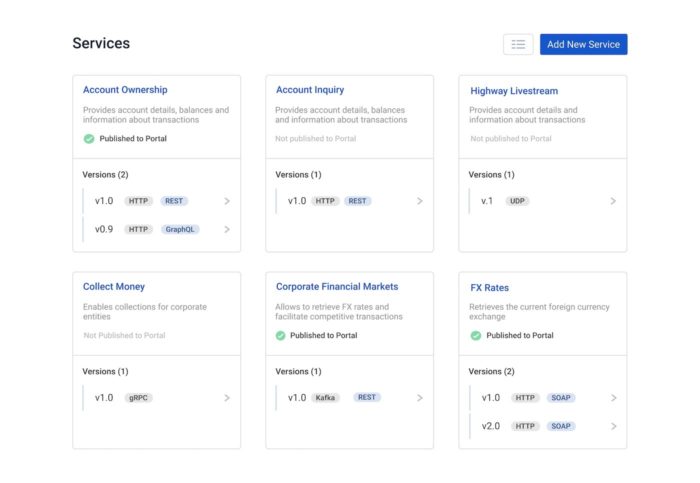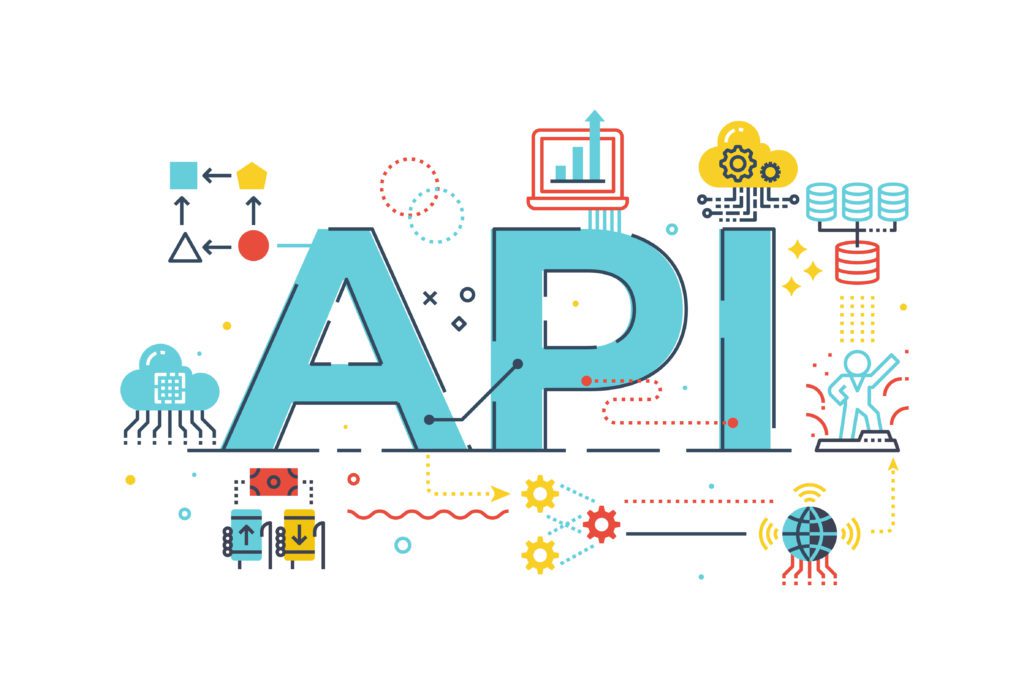
Businesses use diverse applications to get their work done, and in many cases, the boilerplate versions of these business apps don’t effectively integrate for cross-business goals and use cases. Application programming interfaces (APIs) help companies create new applications, optimize existing applications, and most importantly, find ways to create connectivity amongst enterprise apps.
Many companies use one or more APIs to better manage their application infrastructure, but APIs benefit from management as well. When APIs are directed by API management best practices, the business unlocks the potential for strategic microservices, optimized lifecycles, stronger security, and better compliance.
Learn More About APIs: What Are the Different Types of APIs?
What does API management software do?
API management software is designed to help developers create, deploy, and maintain both individual APIs and API relationships. In some cases, these tools can also assist with developer and user best practices for APIs.
Many enterprises rely on API software to stay organized when discovering, testing, and launching new APIs and integrations. These tools help to simplify and standardize the API rollout process, and they can also provide native security and performance optimization support.
Important steps in the API management process include creating web application interfaces; managing access, use cases, and monitoring over time; and analyzing and reporting on data from API usage and performance.
Also Read: How Do APIs Work?
Important features in API management software
API management software occasionally specializes in one core area of management, but most tools are comprehensive solutions that offer the following features:
- API gateway: The API gateway acts as the middleman between clients and services, interpreting the API’s request and allowing it to pass through if it follows all requirements.
- Developer portals and dashboards: Developer portals make it possible for developers to view all company-owned APIs in a single dashboard location; other dashboards can be spun up as needed to better understand features like API lifecycles and security.
- Analytics, data visualization, and reporting: API analytics are used to better understand API event data; API management tools allow users to format this data into graphs, charts, and other data visualizations and reports.
- Testing environments: Testing environments, or sandboxes, are used to test APIs with all of their necessary dependencies, but without disrupting the actual API lifecycle or currently running APIs.
- API lifecycle management: Through a combination of documentation, security, automated workflows, and policy management, many tools manage the API lifecycle from creation to deployment to ongoing maintenance.
- API marketplace: The API marketplace is a space where API users can find free or paid versions of specialized APIs and related applications.
- Documentation: API documentation should tell the history of an API and its versions, but it should also establish policies and procedures for how the API should operate.
- Built-in security and authentication: Both the API and API users need certain types of security boundaries in place to protect application data.
Best API management software and tools
| Microservice development support | Monetization features | Native security support | Comprehensive free version | |
|---|---|---|---|---|
| Apigee API Management | Yes | Yes | Yes | Yes |
| IBM API Connect | Yes | Yes | Yes | Yes |
| Microsoft Azure API Management | Yes | Yes | Yes | No |
| MuleSoft Anypoint API Manager | Yes | Yes | Yes | Yes |
| Akana | Yes | Yes | Yes | No |
| Workato | Yes | No | Yes | No |
| Red Hat 3scale API Management | Yes | Yes | Yes | No |
| RapidAPI Hub | No | Yes | Yes | Yes |
| Kong Konnect | Yes | Yes | Yes | Yes |
Apigee API Management
Best for data storage and disaster recovery
Apigee API Management is a Google Cloud API management solution focused on helping users apply historic data and metadata knowledge to their ongoing API projects. Using artificial intelligence and machine learning, the tool automates predictive analytics for API behavior, while also automating workflows for anomaly detection, security, and compliance needs. This tool is a strong solution for buyers who want real-time assistance with application performance, traffic monitoring, and other tools for consistent runtime and uptime.
Features:
- Apigee Hybrid for flexible API hosting on-premises, within Google Cloud, or hybrid
- Apigee Integration for Google Cloud API management and integration
- AI-powered API monitoring with historic metadata used for predictive behavioral analytics
- Digital assets packaging optimized for monetization and revenue model management
- Natively extends into microservices stack management
Pricing: Apigee comes in four different pricing packages: Evaluation, Standard, Enterprise, and Enterprise Plus. Pricing information is available upon request from the Google sales team.
IBM API Connect
Best for developers
IBM API Connect is a full lifecycle API management solution that many customers choose for its hybrid cloud and multicloud flexibility, as well as its digital marketing features that support socialization and monetization. When used in partnership with IBM Cloud Pak, this tool provides technical support for teams looking to modernize their application infrastructure and migrate to a cloud environment.
Features:
- IBM DataPower Gateway for log and API traffic management
- Developer toolkit for API modeling, developing, testing, and publishing
- Developer portal for API discovery, subscription, and registration management
- Cloud scaling approach with cloud-native design for microservices
- API product management with monetized product bundling
Pricing: IBM offers IBM API Connect Lite (free version), IBM API Connect Enterprise “pay as you grow,” and IBM API Connect Enterprise with subscription pricing. Learn more about pricing here.
Microsoft Azure API Management
Best for customization
Microsoft Azure API Management is an API solution many buyers turn to when they’re looking for more developer-level customization capabilities. Beyond the flexibility that many other tools include for data visualization and reporting, this Azure platform allows teams to fine-tune quotas, rate limits, and policies to their business application infrastructure’s exact needs. Customers also frequently select Azure API Management for its speed and scalability, especially when it comes to response caching.
Features:
-
- Data access management with authentication, authorization, and user limiting features
- Streamlined delivery and deployment with API mocking, version history, revisions, and automated documentation
- Custom developer portal option for internal teams and external customers
-
- Digital transformation for legacy web services through REST APIs
- Single point-of-access and security managed through domain management, keys, tokens, and IP filtering
Pricing: Microsoft offers several different pricing and package options. Learn more about pricing here.
MuleSoft Anypoint API Manager
Best for governance, security, and policy management
MuleSoft Anypoint API Manager is an API manager from MuleSoft, a Salesforce company that specializes in integration at the data, application, and device levels. This product offers extensive support for first-time API developers, with webinars, whitepapers, and the “Deploying and managing your first API” tutorial extended for user assistance. Anypoint is also praised for its governance, risk, compliance, and security features, with native support for several different regulatory frameworks, integrated access management, and flexible policy building.
Features:
- Microservices governance through service mesh architecture
- Prebuilt and custom policies with real-time customization for rate limiting, security, caching, and identity management
- Integrated access management through connections with other tools like PingFederate, Okta, LDAP, and OpenAM
- Performance-, policy-, and user-based analytics
- Flexible API import options, including configuration zip files
Pricing: Pricing information is available upon request from Salesforce and MuleSoft sales teams. A free trial is also available.
Akana
Best for API lifecycle management
Akana‘s API management platform is a solution many customers choose for its comprehensive guidance on API and application lifecycle management. The company gives its customers API management services, a simple interface for API design, integration with CI/CD pipelines, and flexible application of governance policies. With both its flexibility and expert advice at each stage of API development, this product allows customers to tailor their APIs and development environments to what works best for their business’s use cases.
Features:
- API management services and other digital transformation support is available upon request from the vendor
- Support for JMS, AMQP, and other message brokers
- Rate limiting, routing, user authentication, and policy management through API gateway
- Point-and-click editor for API design
- Templated security policies available for OAuth, JWT, SAML, SSO, LDAP, and industry-specific needs
Pricing: Pricing is available by request from the Akana sales team.
Workato
Best for automation recipes
Workato is a top enterprise automation platform that provides low-code API management as one of its core features. The platform’s other focus areas include robotic process automation (RPA), workflow automation, smart data pipelines, and chatbot management. Much like its other products, Workato’s API management module shines in the area of automation with highly customizable automation recipes for REST APIs. Customers also appreciate the product’s user-friendly API walkthrough for getting started.
Features:
- Workflow-as-a-service with business rule application
- Workato Recipes for API management
- Assistance with supplier- and partner-facing EDI interfaces
- Low-code/no-code lifecycle management
- Connectivity through prebuilt connectors, connector SDK, on-premises agent, and universal HTTP
Pricing: Workato offers two different packages for two different audiences. Workato Business helps businesses manage the APIs they use, and Workato Product helps API product vendors optimize their products for customers. Pricing information is available upon request from the Workato team.
Red Hat 3scale API Management
Best for analytics and program management
Red Hat 3scale API Management is an API management solution that was purchased by Red Hat in 2016 and subsequently made open-source for future users. The product includes several additional Red Hat integrations and holds some of the most advanced analytics features in its arsenal. With its open-source design, experienced developers can further cultivate these features to meet specific line-of-business expectations.
3scale is offered as a part of the Red Hat Integration suite of products. While the suite approach might not work well for companies who only want or need this solution, some other benefits of working with the full Integration suite include centralized API program management and additional monetization opportunities.
Features:
- API traffic control, security, and policy management through self-managed and cloud options
- Centralized control for API program management
- OpenShift integration and Fuse integrations for containerization and API development needs
- Hybrid cloud support in API design
- Support for encryption, authentication, and authorization protocols
Pricing: Red Hat 3scale API Management can only be purchased as a part of the larger Red Hat Integration suite of solutions. This product offers a 90-day free evaluation period and three different pricing packages: Essential, Standard, and Premium. Learn more about pricing here.
RapidAPI Hub
Best for self-service and API discovery
RapidAPI Hub takes a different approach to API management than most other vendors on this list by creating and focusing on its large API marketplace. This is a top solution for companies looking to get started with API solutions or trying to find the right fit for a specific business use case. To help users through the marketplace, RapidAPI directs attention to its discovery and consumption management features. Some of its most highly-rated features in these two categories include deep search functionalities and detailed developer dashboards with user metrics.
Features:
- API selection guidance with metrics like average latency, success rate, and popularity scoring
- API browsing by category, type, and collection in the Hub marketplace
- Consumption management with developer dashboards, focused analytics, access control, and charts for user monitoring
- Governance and security support with API keys, user blocking, privatized plans, 2FA, schema validation, and API key rotation
- Integration support with endpoint visibility, code snippet and embed, and browser-based testing
Pricing: Many features of the RapidAPI Hub marketplace are free to users. Some APIs are freemium or paid solutions that incur additional costs.
Kong Konnect
Best for microservices development
Kong Konnect is an open-source API gateway and microservice management layer that many users rely on for its flexible design. The microservices focus makes it a unique player in the API management space because the tool puts less emphasis on traditional dashboards, analytics, application lifecycle management, and security features you might find in an API management tool.
However, Kong Konnect is a top choice for users who want to develop or optimize existing microservice architecture for their business applications. One of the top microservice benefits in this tool is the Vitals feature, which creates a single pane view for services and runtimes with focused microservice monitoring and analytics.
Features:
- Runtime Manager to manage API features across hybrid, multicloud, Kubernetes, and self-hosted infrastructures
- ServiceHub for services cataloging and lifecycle management
- Dev Portal that integrates with CRM technology
- Integration with Kong Insomnia for GitOps and team projects
- Kong Mesh Universal Service Mesh
Pricing: Kong offers three pricing tiers for Kong Konnect: a free version, “Plus” for $250 per service per month, and custom pricing for enterprise. Learn more about pricing and included features here.
Who needs API management solutions?
Many types of enterprises can benefit from API management solutions, especially if their teams work on projects that require extensive collaboration and application use. Here are a handful of working environments where API management tools will be particularly useful:
- Teams are working with diverse applications, solutions, and APIs in their portfolio
- The company is looking to improve application security and data governance
- DevOps teams are looking for more efficient deployments and ongoing maintenance for applications and integrations
- Developers want a space to test new integrations and applications for their business
Getting Started with API Software: How to Use an API: Best Practices for Beginners
Benefits of API management software
Governance, risk, compliance, and security focus
APIs can do a lot of work to improve enterprise connectivity and expand project possibilities, but not all APIs are created equally—especially when it comes to following policies, procedures, and basic security best practices. Most API management software solutions make it a priority to include native support for GRC and security protocols. Even if native support is not available for your particular risk concern, API management platforms typically extend enough flexibility for you to build up your policies and deploy them through the platform or third-party GRC platforms.
Microservices and scaling support
Many enterprises choose to break their larger applications into microservices to increase focus and agility potential when those applications need to be updated. Instead of updating hundreds of lines of code across the application every time a small change needs to happen, microservices help DevOps and other ITOps teams to pinpoint their changes and limit time spent on unnecessary updates.
Microservices are most often created and delivered by APIs, and API management tools act as the organizational backbone for these efforts. From the comprehensive platform that comes with an API management solution, developers can see all microservices from a single pane of glass and determine how well they’re functioning with ease. Saved time and costs make it possible for teams to scale their operations and applications more efficiently.
API data democratization
Especially in larger companies where several APIs are running simultaneously, it can be difficult to monitor performance and translate information to all affected teams. With an API management platform that consolidates this information and illustrates it with data visualizations and other analytical features, developers can spot where problems are happening and effectively convey information to appropriate stakeholders. An API management platform makes it easier for technical teams to quickly address problems, and it also helps them to democratize data for non-technical team members who need to understand performance metrics.
Read Next: Best DevOps Tools for 2022
